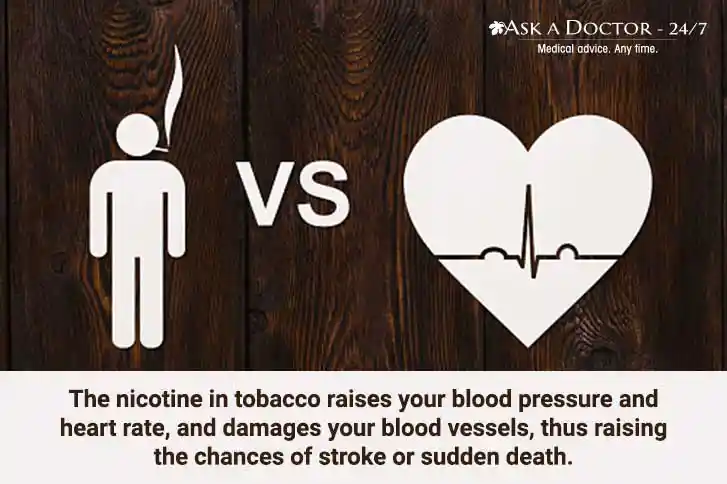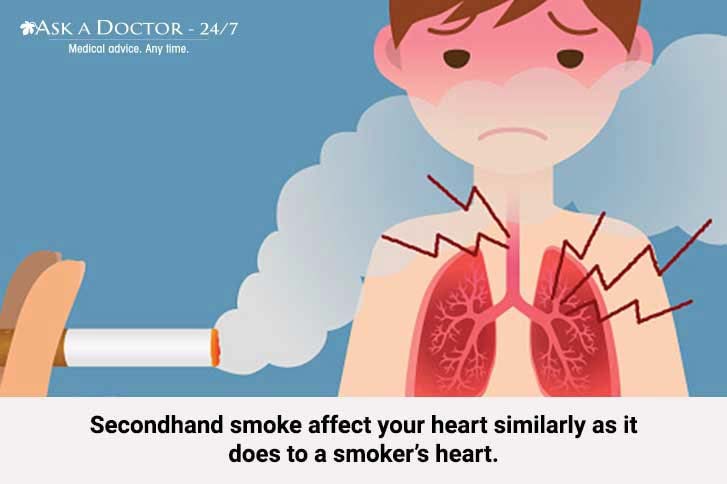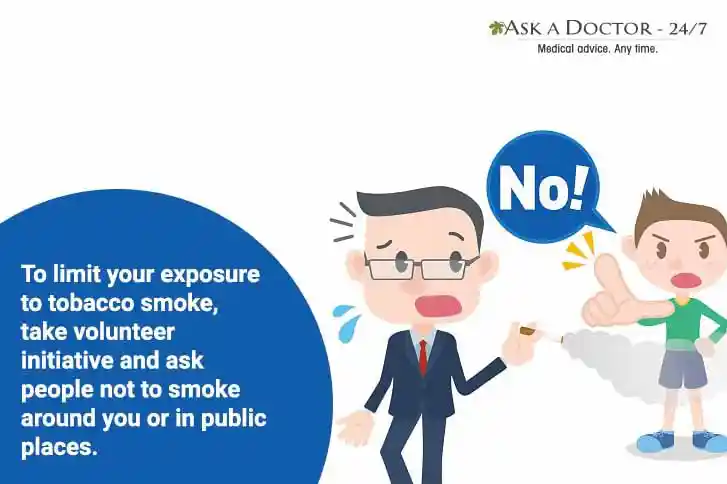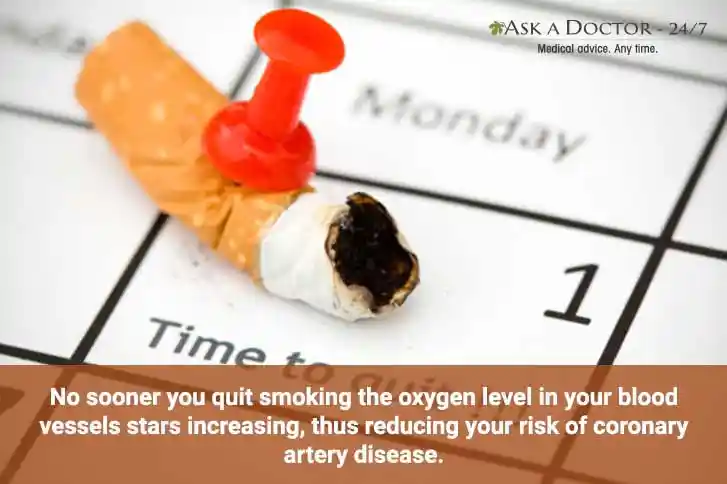Secondhand Smoke Is As Injurious As Direct Smoking!! Here's What You Need To Do!
If you are one of those who believe that smoking a cigarette is a cool thing to do, you must know that tobacco use – both in smoke and smokeless form – is one of the prime contributors to heart disease. Not just direct use, but secondhand smoke exposure is also responsible for upping your risk of heart attack and stroke.
How tobacco causes heart disease?

Tobacco contains some of the deadliest chemical compounds that are known to cause chronic diseases. When we talk solely about heart disease, the nicotine in tobacco:
- Raises your blood pressure
- Speeds up your heart rate
- Decreases the amount of oxygen in your blood
- Increases the tendency for blood to clot
- Damages your blood vessels
- Forms plague in your arteries
Eventually, these conditions increase the risk of heart disease, thereby raising the chances of stroke or sudden death.
Impact of secondhand smoking

When you breathe in the air where anyone nearby is smoking a tobacco, it is called secondhand smoking. If you are frequently exposed to secondhand smoke, the nicotine in the smoke will affect your heart similarly as it does to a smoker’s heart. It can make your blood thicker and stickier, increase your bad cholesterol (LDL), and damage the lining of your blood vessels. All these changes can result in a heart attack or stroke.
It is estimated worldwide that nonsmokers exposed to secondhand smoke have 25 percent to 30 percent increased risk of developing heart disease than the normal population. So better limit your exposure to tobacco smoke!
It is estimated worldwide that nonsmokers exposed to secondhand smoke have 25 percent to 30 percent increased risk of developing heart disease than the normal population. So better limit your exposure to tobacco smoke!
Tips to stay away from secondhand smoke

Follow these simple rules to limit your exposure to tobacco smoke:
- Ask people not to smoke around you in public places
- Do not allow anyone to smoke in your home and car
- Make sure your child day care or school is smoke-free
- Avoid bars and restaurants that allow smoking
- Talk to the management if your colleague smokes in any confined area or no smoking zone
- Encourage your friends and family members to stop smoking
- Inform your doctor if you stay or work with smokers
How does quitting tobacco help?

As soon as you quit tobacco, your:
- Blood circulation gets improved
- Blood pressure and pulse-rate return to normal
- Oxygen level in the blood gets increased
- Risk of heart disease and stroke goes down
So, practice prevention to stay healthy and hearty!
For any query related to tobacco and heart health, you can consult an online Addiction Medicine Specialist now.
Ask a Specialist
Recent Questions


